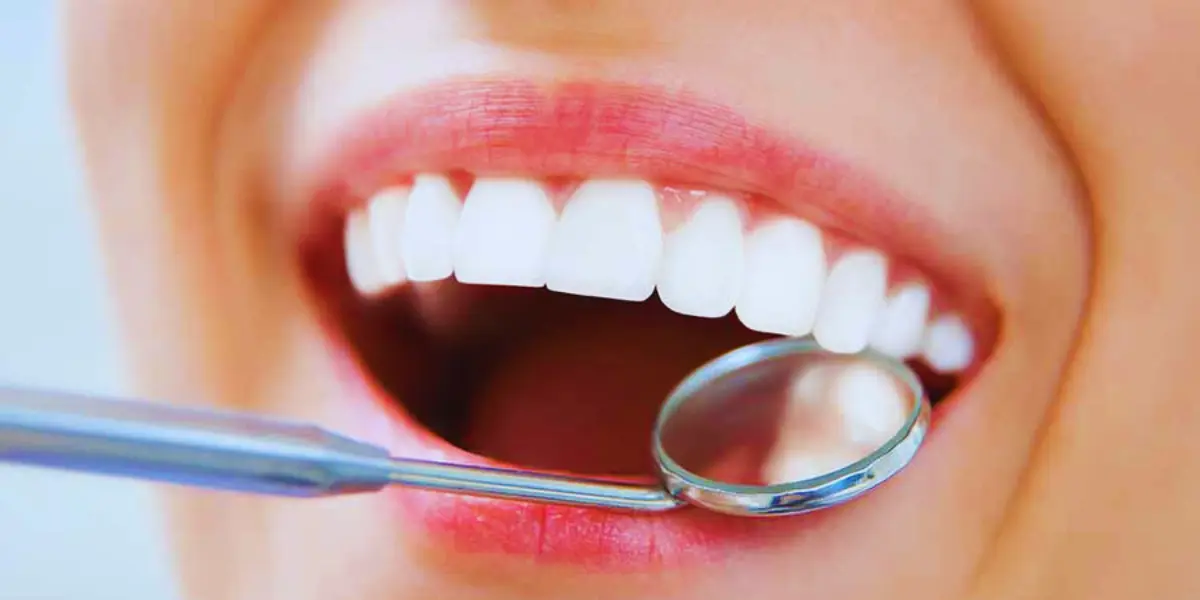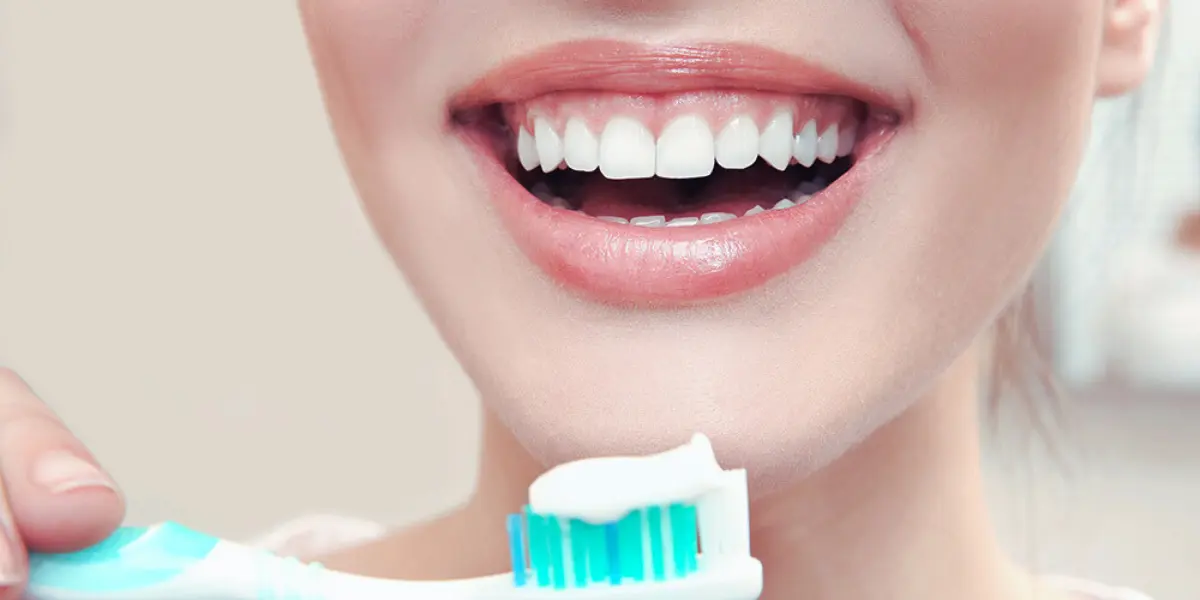Keeping your teeth and gums healthy is what oral hygiene is all about. Just brush and floss regularly, and make sure you get dental check-ups and cleanings twice a year. Remember, it’s not just for a great smile; good oral hygiene is also indispensable for your overall health.
Studies have even linked oral problems to other health issues. So, taking care of your mouth isn’t just good for your teeth and your whole body. Here’s a quick look at why oral hygiene matters so much, from its connection to overall health to preventing tooth loss and keeping that smile bright.
What is Oral Hygiene? How Can I Improve My Mouth Hygiene?

Oral hygiene means keeping your teeth healthy and free from decay and mouth infections. This involves regular brushing and flossing. Dental exams and cleanings, at least twice a year, are also crucial for good oral health.
Some key Reasons Why Oral Hygiene Is Important
✔ Overall Health Connection
Your mouth is a gateway to your body. Problems in your mouth can signal diseases like diabetes—Harvard research links gum disease with a higher risk of heart disease due to inflammation.
✔ Early Disease Detection
Regular dental visits are essential. They help spot oral diseases early, which can affect your overall health.
✔ Prevents Tooth Loss
Bad oral hygiene leads to tooth decay or gum disease, causing tooth loss. Brushing your teeth daily, flossing, and dental cleanings can prevent this.
✔ Personalized Dental Care
Everyone’s teeth and mouth are different. Regular dental check-ups help create a unique care plan for each person.
✔ Brighter Smile
Good oral hygiene is key to keeping your teeth clean and your smile bright. Good oral hygiene is more than just about your mouth. It keeps your beautiful smile intact.
Natural Ways To Maintain Oral Hygiene

1. Brushing And Flossing
Brushing and flossing lay the groundwork for oral health. A twice-daily brushing routine with a soft-bristled toothbrush prevents gum irritation. Flossing reaches tricky spots between teeth. It reduces plaque buildup and prevents gum disease.
Tip: For a natural toothpaste alternative, mix baking soda with water. This homemade paste cleans effectively without artificial additives.
2. Natural Mouthwashes For A Balanced Oral Flora
Commercial mouthwashes can be harsh. A gentler, more effective option is rinsing with saltwater. It combats harmful bacteria and soothes inflamed gums. Add a teaspoon of salt to a cup of warm water for a simple, effective rinse.
Tip: Create a refreshing rinse with a few drops of peppermint oil and water. It’s a natural breath freshener.
3. Dietary Choices For Strong Teeth
Eating habits significantly affect dental health—crunchy fruits and vegetables like apples and carrots naturally clean teeth surfaces. Dairy products, rich in calcium and phosphorus, strengthen tooth enamel. Avoiding sugary snacks and beverages is crucial in cavity prevention.
Tip: Chewing xylitol-containing sugar-free gums after meals can neutralize harmful acids. This can help prevent tooth decay.
4. The Importance Of Hydration
Drinking plenty of water is vital for oral hygiene. It helps rinse away food particles. It maintains saliva production, which is crucial for neutralizing acids and washing away bacteria.
Tip: Fluoridated water, if accessible, can help strengthen teeth and prevent decay.
5. The Impact Of Tobacco And Alcohol On Oral Health
Tobacco use is linked to gum disease, tooth decay, and increased risk of oral cancer. Alcohol, especially in large amounts, can dry out the mouth. This reduces saliva’s protective role and encourages bacterial growth.
Tip: Reducing tobacco and alcohol use can significantly improve oral health.
6. The Power Of Herbal Remedies In Oral Care
Herbs offer natural benefits for oral health. Clove oil is known for its pain-relieving properties, especially for toothaches. Neem twigs have been used traditionally as a natural toothbrush. They effectively clean teeth and gums.
Tip: Rinse with green tea to reduce plaque and freshen your mouth. Green tea contains natural fluoride and antioxidants.
7. Oil Pulling
Oil pulling, an ancient technique, involves swishing oil in the mouth for about 15 minutes. This practice is believed to draw out toxins and improve oral hygiene. Coconut or sesame oil are popular choices.
Tip: Practice oil pulling in the morning on an empty stomach for optimal results.
8. Comprehensive Tongue Care
A clean tongue is as important as clean teeth. Bacteria and food particles can linger on the tongue. This causes bad breath and other oral health issues. Gently brushing your tongue or using a scraper can significantly improve oral hygiene.
Tip: A simple salt and water solution can clean the tongue effectively.
9. Lip Care As Part Of Oral Hygiene
Healthy lips contribute to overall oral health. Keep them moisturized to prevent cracking and peeling, especially in extreme weather.
Tip: Protect your lips with a natural balm, preferably with SPF, to prevent sun damage.
10. The Role Of Regular Dental Check-ups
Natural oral care methods are beneficial. However, they are not a substitute for professional dental care. Regular check-ups and cleanings help identify and address issues early on. It ensures long-term oral health.
Tip: Share your natural oral care routine with your dentist. Then, receive customized advice that complements professional treatments.
Best Natural Foods For Oral Hygiene

▶ Leafy Greens For Oral Hygiene
Leafy greens are full of nutrition. Spinach, celery, and lettuce contain important vitamins and minerals like calcium and folic acid. Chewing these crunchy greens also helps clean your teeth.CarrotsCarrots are good when eaten raw. They are crunchy and help clean your teeth like a toothbrush. Chewing them is also good for your gums. They have keratin and vitamin A, which help fix tooth enamel.
▶ Eat More Fish
Fish have Omega-3 oils that help prevent gum disease. They also have Vitamin D, which is good for your mouth and body. Tuna and salmon are great choices.
▶ Lean Meat
Lean meats, like chicken, are good for your teeth. They have a lot of protein. They also have phosphorus, which is important for strong teeth and bones. Without phosphorus, your teeth can chip easily, even if you eat lots of calcium and vitamin D.
▶ Nuts For Healthy Teeth
Nuts are good for teeth. They make more saliva, which cleans your teeth. They have vitamins and minerals that are good for your teeth. Add different nuts to your snacks for a natural tooth cleaning.
End Result
In summary, taking care of your mouth naturally is a mix of smart daily practices, home remedies, and good choices for your overall health. These methods help keep your teeth and gums in top shape and reduce exposure to harsh chemicals. Remember, these natural ways are most effective when paired with healthy dietary choices, regular dental check-ups, and a balanced lifestyle.
References
- Oral Hygiene https://my.clevelandclinic.org/health/treatments/16914-oral-hygiene
- Oral Hygiene https://www.nidcr.nih.gov/health-info/oral-hygiene
- Oral health: A window to your overall health https://www.mayoclinic.org/healthy-lifestyle/adult-health/in-depth/dental/art-20047475